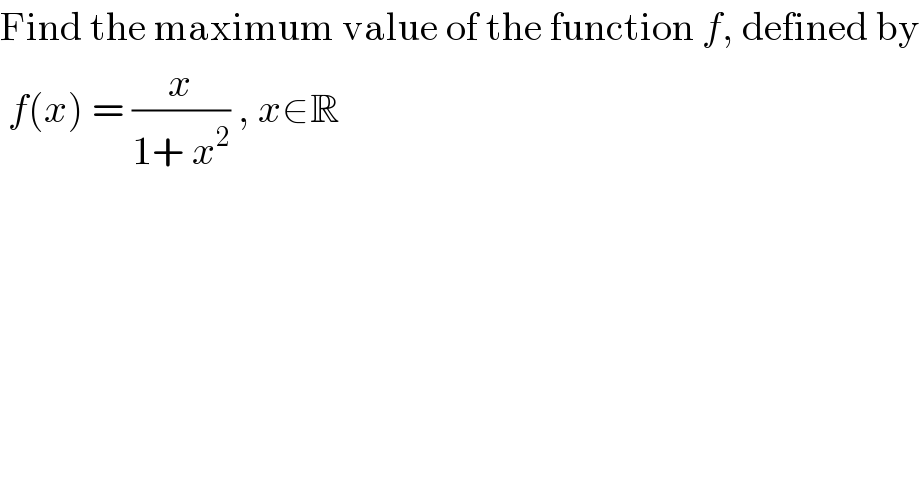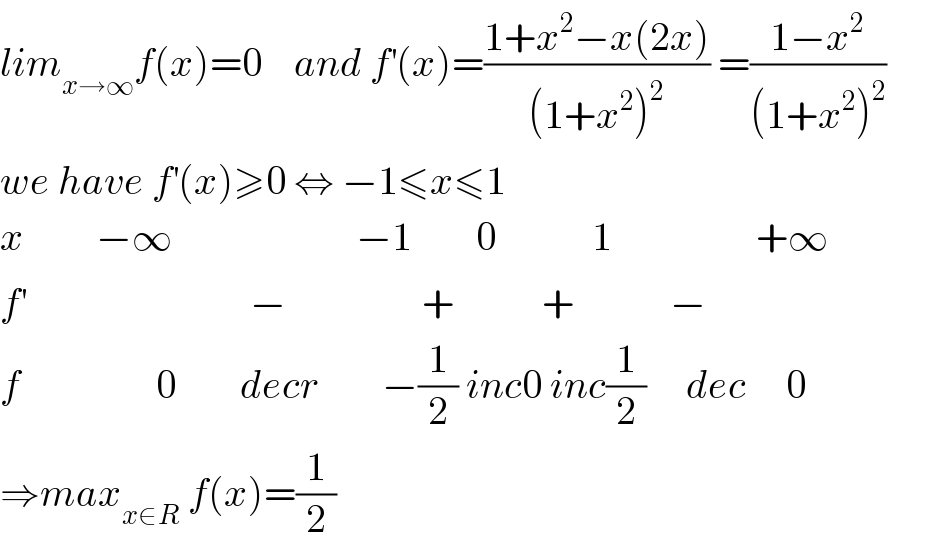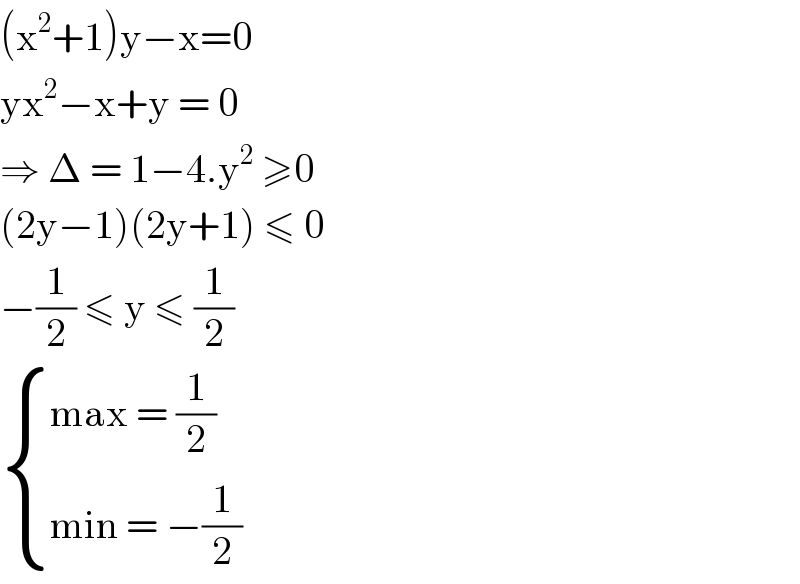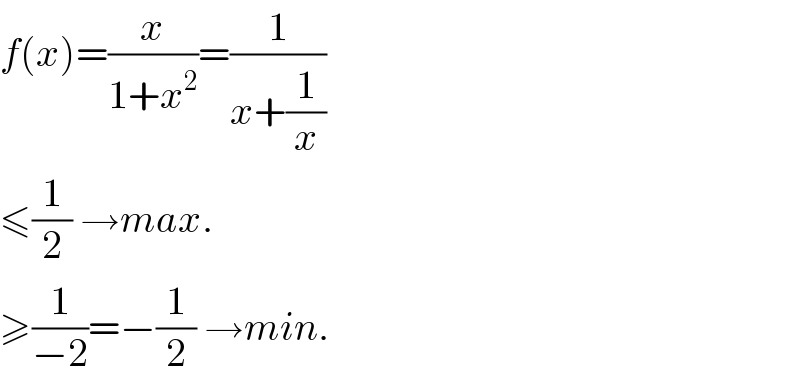
Question and Answers Forum
Question Number 83850 by Rio Michael last updated on 06/Mar/20

Commented by mathmax by abdo last updated on 06/Mar/20

Answered by john santu last updated on 06/Mar/20

Answered by mr W last updated on 07/Mar/20

| ||
Question and Answers Forum | ||
Question Number 83850 by Rio Michael last updated on 06/Mar/20 | ||
 | ||
Commented by mathmax by abdo last updated on 06/Mar/20 | ||
 | ||
Answered by john santu last updated on 06/Mar/20 | ||
 | ||
| ||
Answered by mr W last updated on 07/Mar/20 | ||
 | ||
| ||